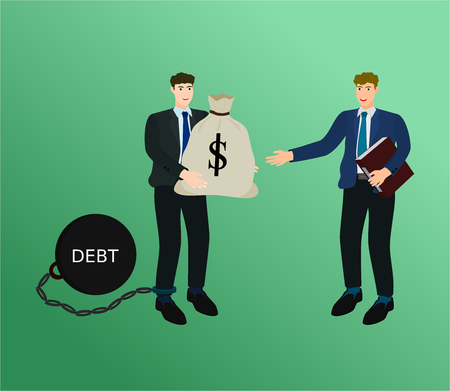While it may sound ill-advised at surface level, investing in distressed debt can be lucrative for investors willing to take on higher-risk lending opportunities. Distressed debt refers to the securities of individuals or companies in financial distress from defaulting on a loan, under bankruptcy protection, or similar situations.
The most enticing part of this investment is the potential for high yields. Distressed debt investments are often priced at higher interest rates compared to other investments because of the assumed risk of default. Higher interest rates can result in a greater return for investors.

Depending on the capital structure, distressed-debt investors often hold senior positions—in other words, they get paid first. This mitigates some of the risk because it increases the chance of recovering some or all of the investment, even if bankruptcy becomes an issue. Because of the added risk, distressed debt usually involves active management to facilitate the restructuring process and subsequent loan repayment.
With skilled attention, distressed debt can result in more profitable income compared to passive, fixed-income options. Distressed-debt investors may also have legal rights and protections, including covenants, collateral, and other provisions that can provide an added layer of security.
It’s never good to put all your eggs in one basket—especially when it comes to investing. Distressed debt offers a hedge against market volatility since it doesn’t always correlate with broader market movements. This diversification can add balance to an investment portfolio or strategy. Distressed debt is counter-cyclical, meaning it becomes more prolific during economic downturns such as in a recession. During these times—as we’re currently experiencing—distressed debt is often available at a discount. Because of this, it has the potential to produce significant gains during economic recovery.
The distressed-debt landscape is complex and there are always inherent risks. At Forbix, we are experts in evaluating and acquiring distressed-debt opportunities with minimal risk and significant upside.
As with all investments, we always have skin in the game. We only benefit when our clients do. Because of our successful track record in this area, we’re expanding our current offerings and developing an institutional distressed-debt fund.
The distressed-debt landscape is complex and there are always inherent risks. At Forbix, we are experts in evaluating and acquiring distressed-debt opportunities with minimal risk and significant upside.

As with all investments, we always have skin in the game. We only benefit when our clients do. Because of our successful track record in this area, we’re expanding our current offerings and developing an institutional distressed-debt fund.
Max Kolomeyer spent over two decades working in investment management and private banking. He recently served as Vice President and Senior Private Banker for City National Bank and prior to that for Comerica and Wells Fargo















































